
Exploring the Enchanting Altstadt of Nuremberg
Altstadt, the historic heart of Nuremberg, is a captivating blend of medieval charm and modern vibrancy. As you stroll through its cobblestone streets, you'll be transported back in time, surrounded by well-preserved buildings that tell tales of centuries past. From the imposing Nuremberg Castle, offering panoramic views of the city, to the iconic Frauenkirche with its beautiful Gothic architecture, Altstadt is a treasure trove for history enthusiasts. The neighborhood is split into two parts: Sebalder Altstadt and Lorenzer Altstadt, each with its own unique attractions. Sebalder Altstadt is home to the majestic St. Sebaldus Church and the Albrecht Dürer House, where the famed Renaissance artist lived and worked. On the other hand, Lorenzer Altstadt features the stunning St. Lorenz Church and the bustling Hauptmarkt square, where you can experience the vibrant energy of local markets and festivals. Food lovers will find Altstadt a delightful destination with its array of traditional Franconian eateries and cozy cafes. Don't miss trying the famous Nuremberg sausages and gingerbread, which are local specialties. With a mix of cultural landmarks, culinary delights, and a lively atmosphere, Altstadt is a must-visit neighborhood that offers a genuine taste of Nuremberg's rich heritage.
Local tips in Altstadt
- Visit the Nuremberg Castle early in the morning to avoid crowds and enjoy the best views.
- Explore the Albrecht Dürer House to gain insights into the life and work of the Renaissance artist.
- Experience the Hauptmarkt square during the Christmas season for the famous Christkindlesmarkt.
- Try the local specialty, Nuremberg sausages, at a traditional Franconian restaurant.
- Take a leisurely walk along the Pegnitz River for a picturesque view of the Altstadt.
Exploring the Enchanting Altstadt of Nuremberg
Altstadt, the historic heart of Nuremberg, is a captivating blend of medieval charm and modern vibrancy. As you stroll through its cobblestone streets, you'll be transported back in time, surrounded by well-preserved buildings that tell tales of centuries past. From the imposing Nuremberg Castle, offering panoramic views of the city, to the iconic Frauenkirche with its beautiful Gothic architecture, Altstadt is a treasure trove for history enthusiasts. The neighborhood is split into two parts: Sebalder Altstadt and Lorenzer Altstadt, each with its own unique attractions. Sebalder Altstadt is home to the majestic St. Sebaldus Church and the Albrecht Dürer House, where the famed Renaissance artist lived and worked. On the other hand, Lorenzer Altstadt features the stunning St. Lorenz Church and the bustling Hauptmarkt square, where you can experience the vibrant energy of local markets and festivals. Food lovers will find Altstadt a delightful destination with its array of traditional Franconian eateries and cozy cafes. Don't miss trying the famous Nuremberg sausages and gingerbread, which are local specialties. With a mix of cultural landmarks, culinary delights, and a lively atmosphere, Altstadt is a must-visit neighborhood that offers a genuine taste of Nuremberg's rich heritage.
Iconic landmarks you can’t miss
Imperial Castle of Nuremberg
Experience the grandeur of the Imperial Castle of Nuremberg - a historical landmark rich in culture and breathtaking views.
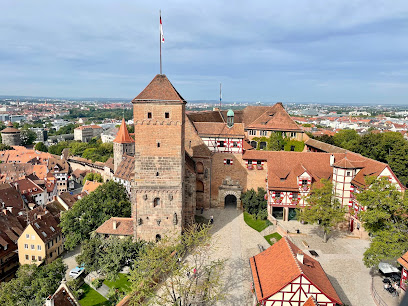
The Beautiful Fountain
Discover the Schönner Brunnen, a stunning historical fountain in Nuremberg's Hauptmarkt, showcasing medieval artistry and cultural heritage.
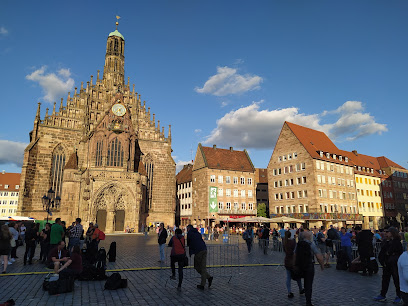
Handwerkerhof Nuremberg
Discover the charm of Handwerkerhof Nuremberg, a medieval-style shopping district brimming with artisanal crafts and local culinary delights.
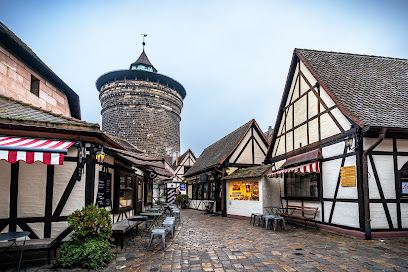
Memorium Nuremberg Trials
Delve into history at the Memorium Nuremberg Trials, where justice was redefined and human rights were championed in the aftermath of World War II.
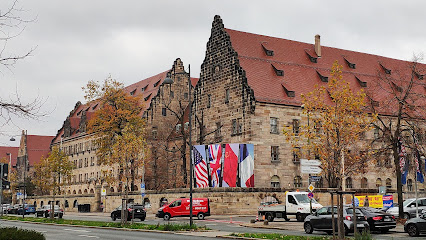
Albrecht Dürer's House
Discover the life and masterpieces of Albrecht Dürer at his historic home in Nuremberg, a captivating art museum and cultural landmark.

Museum Bridge
Discover the Museum Bridge in Nuremberg: a stunning architectural landmark and cultural hub that embodies the city's rich history and charm.
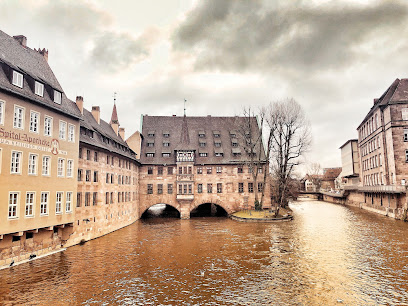
Nürnberg Altstadt
Explore the enchanting Nürnberg Altstadt, a historic district with stunning medieval architecture, lively markets, and rich cultural heritage in the heart of Germany.
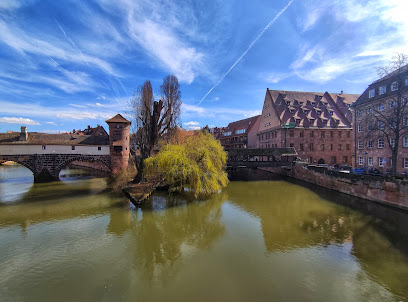
Albrecht-Dürer-Denkmal
Explore the Albrecht-Dürer-Denkmal, a stunning tribute to the master artist in the heart of Nuremberg, blending art, history, and culture in one captivating location.
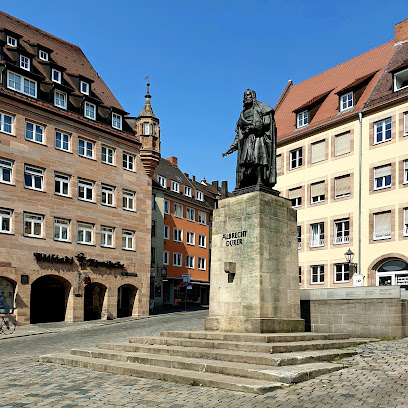
Frauentor
Explore the architectural beauty and historical significance of Frauentor, Nuremberg's iconic medieval gateway that connects the past with the present.
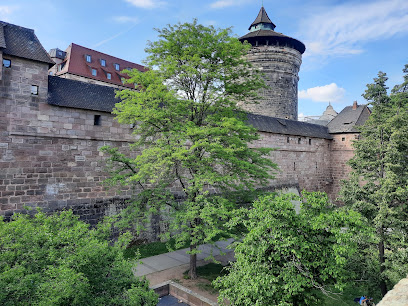
S.P.Q.N. Denkmal
Explore the S.P.Q.N. Denkmal in Nuremberg, a stunning historical landmark that showcases the city's rich heritage and architectural beauty.
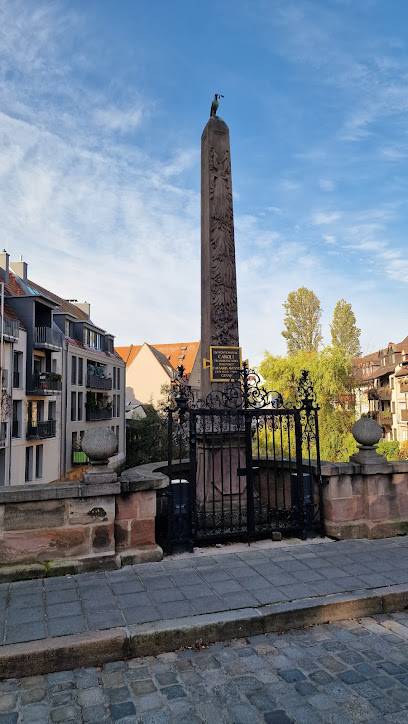
Unmissable attractions to see
Imperial Castle of Nuremberg
Discover the Imperial Castle of Nuremberg, a stunning historical site that offers a glimpse into Germany's rich imperial past and architectural beauty.
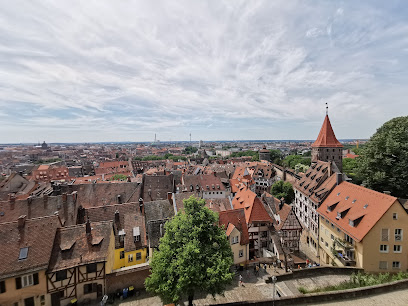
Germanisches Nationalmuseum
Discover the rich cultural heritage of Germany at the Germanisches Nationalmuseum, Nuremberg's premier destination for history and art lovers.
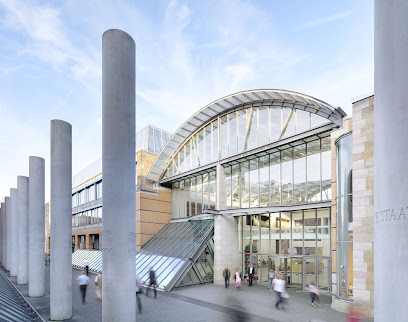
Toy Museum
Discover the charm and history of play at Nuremberg's Toy Museum, a delightful haven for all ages, celebrating toys from past to present.
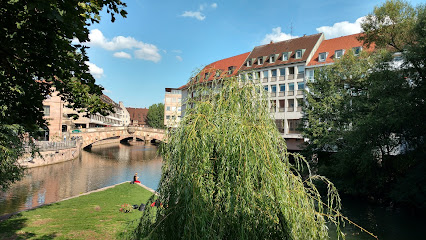
Nürnberg Altstadt
Experience the rich history and vibrant culture of Nürnberg Altstadt, where medieval charm meets modern allure in the heart of Nuremberg.
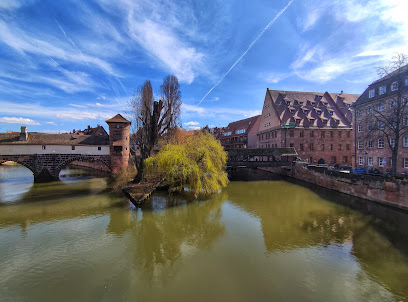
Narrenschiffbrunnen
Explore the Narrenschiffbrunnen in Nuremberg, a magnificent fountain showcasing artistic splendor and cultural heritage in the heart of the city.
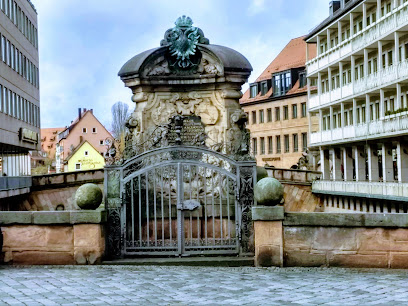
Bürgermeistergarten
Explore the serene beauty of Bürgermeistergarten, a hidden gem in Nuremberg offering lush landscapes and peaceful pathways.
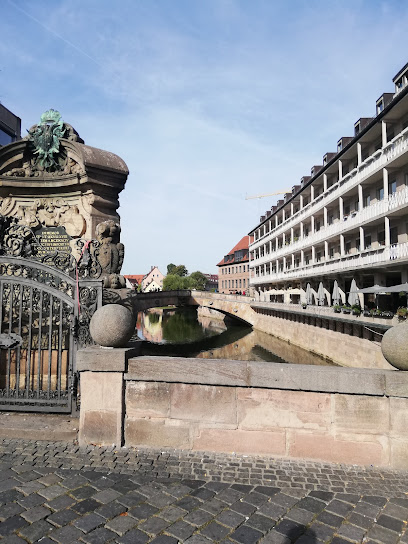
Frauentor
Discover the historical marvel of Frauentor in Nuremberg, where medieval architecture meets rich cultural heritage.
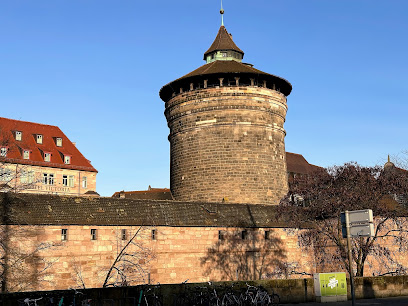
Essential places to dine
Bratwurst Röslein
Experience authentic German flavors at Bratwurst Röslein in Nuremberg - home of the famous bratwurst and delightful local dishes.
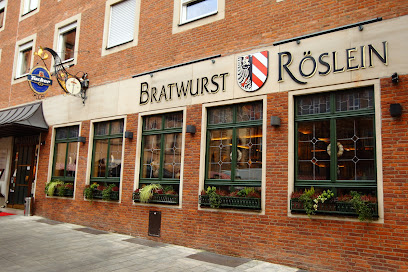
Wirtshaus Hütt'n
Discover the authentic taste of Franconian cuisine at Wirtshaus Hütt'n in Nuremberg - where tradition meets flavor.
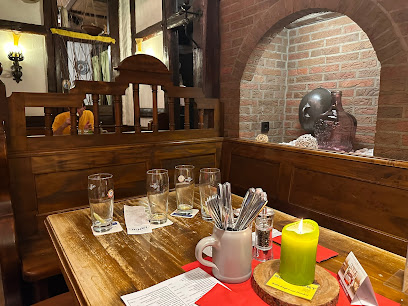
Alte Küch'n & Im Keller
Experience authentic German and Franconian cuisine at Alte Küch'n & Im Keller in Nuremberg - a culinary delight for every traveler.
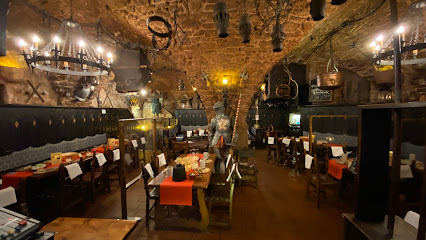
Hausbrauerei Altstadthof - Rotbierstüberl- Brauerei und Whiskydestillerie
Experience authentic Franconian cuisine and craft beer at Hausbrauerei Altstadthof in Nuremberg – where tradition meets flavor.
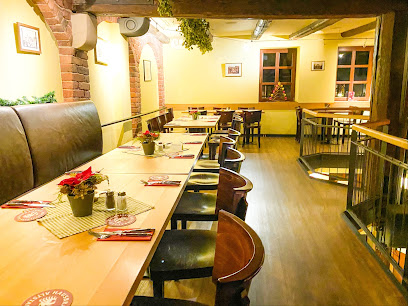
Padelle d'Italia Nürnberg
Experience the essence of Italy at Padelle d'Italia Nürnberg with exquisite dishes and a welcoming atmosphere perfect for any occasion.
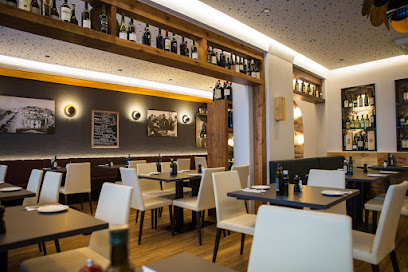
Zum Spießgesellen
Savor authentic Franconian cuisine at Zum Spießgesellen in Nuremberg – where tradition meets taste in every delightful dish.
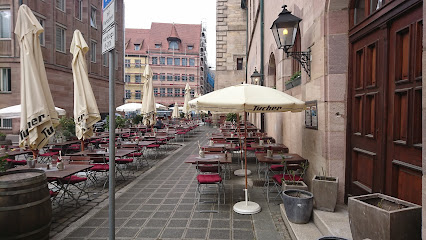
Albrecht-Dürer-Stube
Experience authentic Franconian and Bavarian cuisine at Albrecht-Dürer-Stube in Nuremberg—where tradition meets flavor.
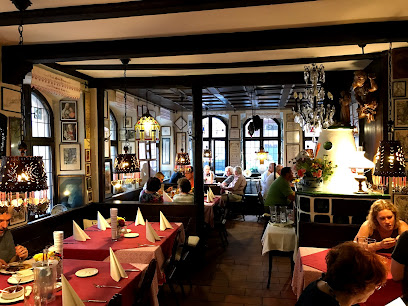
Böhms Herrenkeller
Experience the essence of Bavarian cuisine at Böhms Herrenkeller in Nuremberg—where tradition meets taste in every dish.
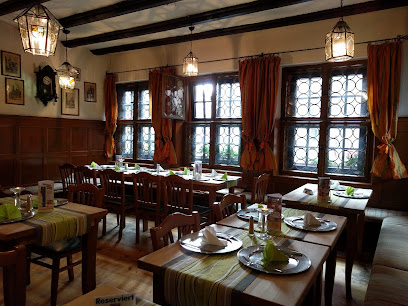
Zum Albrecht Dürer Haus
Savor authentic German cuisine in the historic ambiance of Zum Albrecht Dürer Haus in Nuremberg.
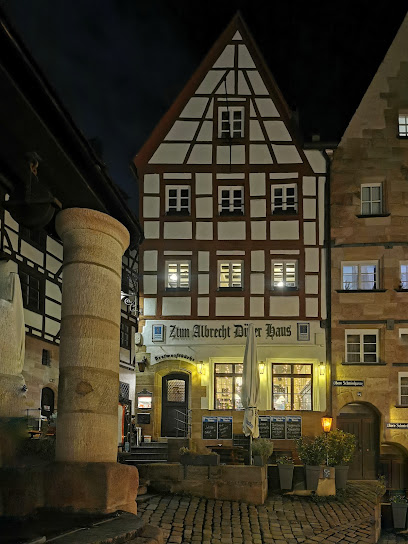
Restaurant Estragon
Experience the rich flavors of Nuremberg at Restaurant Estragon – where tradition meets modern gastronomy in an inviting atmosphere.
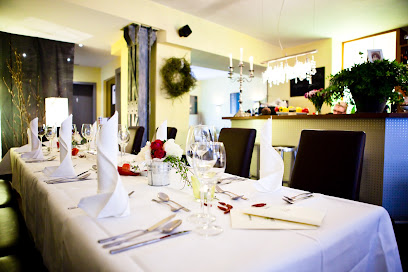
Markets, malls and hidden boutiques
GALERIA Nürnberg an der Lorenzkirche
Explore GALERIA Nürnberg, a premier shopping destination near the Lorenzkirche, offering fashion, beauty, and home goods in the heart of Nuremberg.
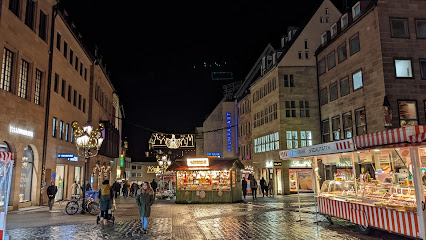
Breuninger Nuremberg
Discover luxury shopping at Breuninger Nuremberg, your premier destination for high-end fashion and accessories in the heart of the city.
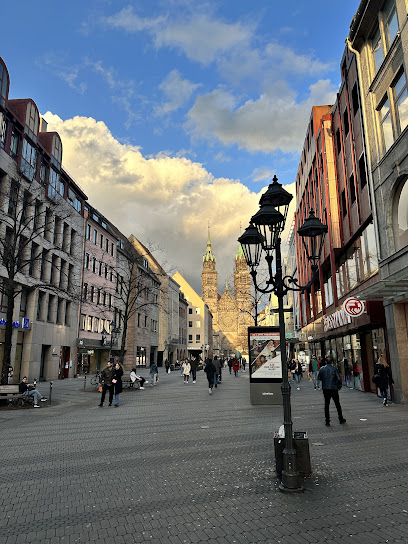
Elbenwald
Explore the enchanting world of Elbenwald, Nuremberg's premier gift shop for pop culture enthusiasts and fans alike.
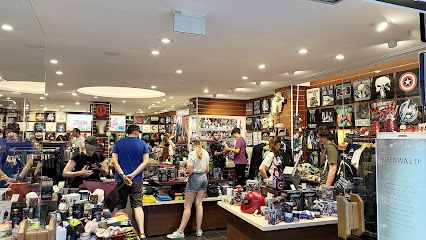
American Store & British Empire
Explore a unique blend of American and British culture at the American Store & British Empire in Nuremberg, Germany, your go-to clothing destination.
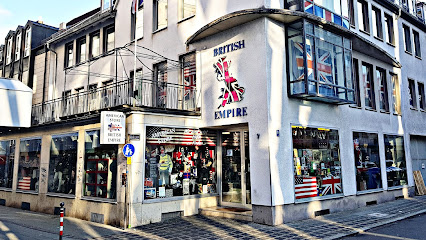
Urban Outfitters
Explore Urban Outfitters in Nuremberg for unique clothing, gifts, and home goods, blending style and creativity in one vibrant shopping destination.
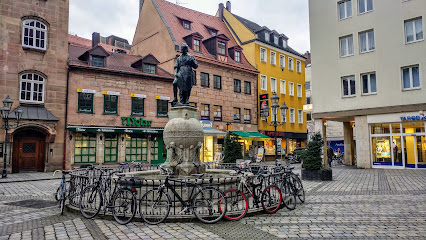
SandyKay
Explore SandyKay in Nuremberg for the latest trends in men's and women's fashion along with stylish accessories - a must-visit for fashion lovers.
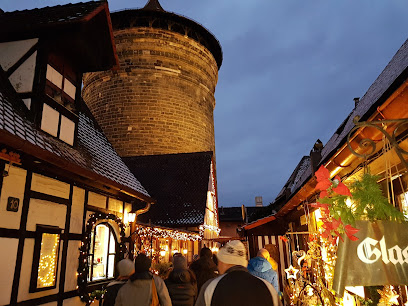
Newseum Store
Explore the Newseum Store in Nuremberg, where fashion meets the fascinating world of journalism and media.
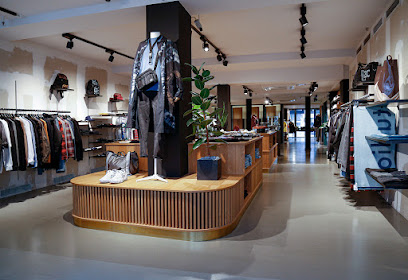
Kauf Dich Glücklich Nürnberg
Explore unique fashion and local artisan finds at Kauf Dich Glücklich Nürnberg, a must-visit clothing and shoe store in the heart of Nuremberg.
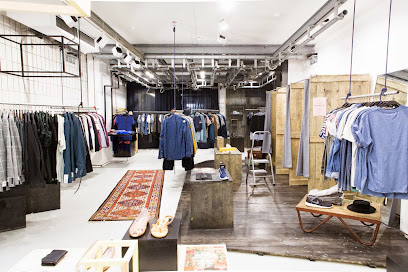
Saltmill Vintage
Step into Saltmill Vintage in Nuremberg for an unforgettable shopping experience filled with unique vintage clothing and timeless accessories.
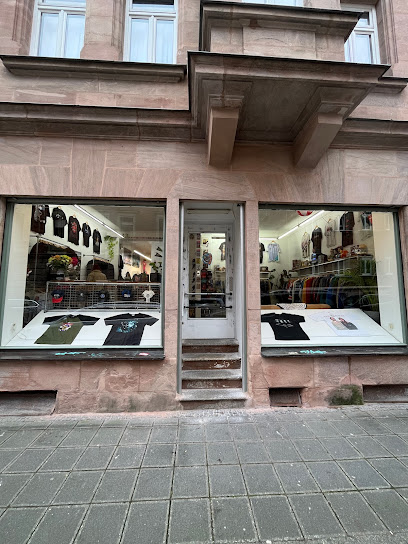
Wolford Boutique Nürnberg
Explore Wolford Boutique in Nuremberg for elegant lingerie, stylish women's clothing, and chic fashion accessories in a luxurious shopping environment.
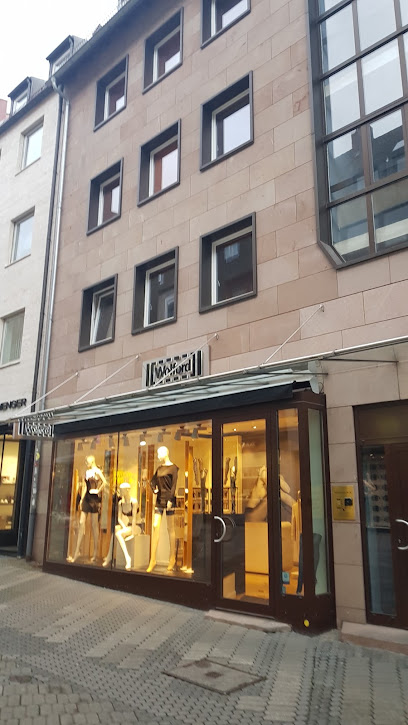
Essential bars & hidden hideouts
Hausbrauerei Altstadthof - Rotbierstüberl- Brauerei und Whiskydestillerie
Explore the authentic flavors of Franconia at Hausbrauerei Altstadthof, a brewpub rich in tradition and local craft beers.
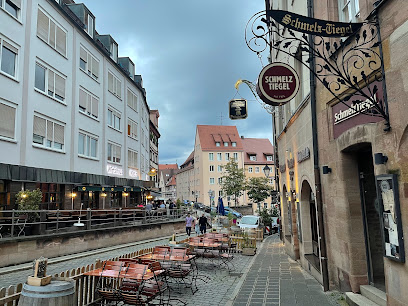
Finnegan's Harp Irish Pub
Discover the heart of Ireland in Nuremberg at Finnegan's Harp Irish Pub, where great food, drinks, and live music await.
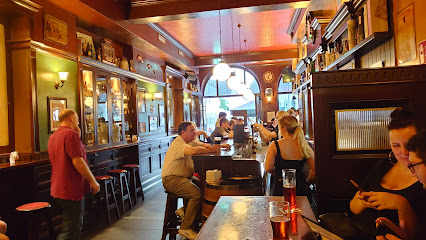
The King's Arms - Nürnberg
Experience authentic Bavarian hospitality at The King's Arms, a beloved pub in the heart of Nuremberg offering delightful food and drinks.
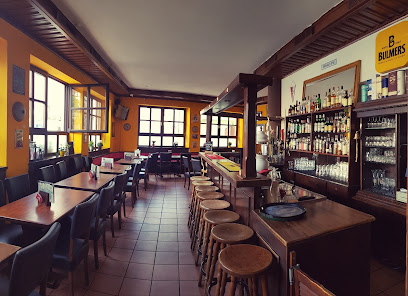
Die Rote Bar - Nürnberg
Discover the lively ambiance and diverse drinks at Die Rote Bar, a top nightlife destination in Nürnberg, perfect for tourists seeking a memorable night out.
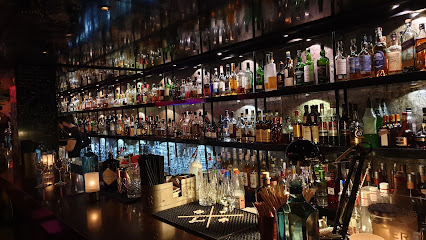
The Flower of Hawaii - Nürnberg
Experience a taste of the tropics at The Flower of Hawaii in Nuremberg, where exotic cocktails and a vibrant atmosphere await.
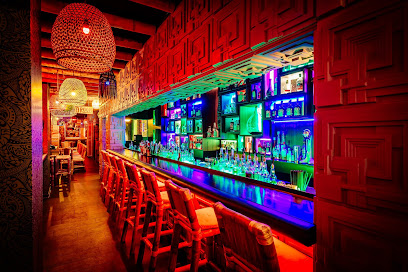
Kilians Irish Pub - Nürnberg
Experience authentic Irish hospitality in the heart of Nuremberg at Kilians Irish Pub, where great food and drinks await.
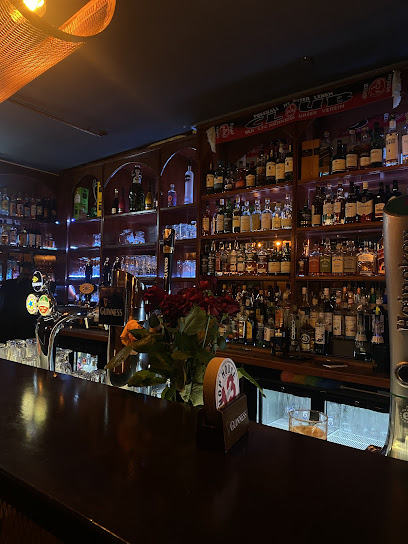
Gin & Julep Bar
Discover the exquisite craft of cocktails at Gin & Julep Bar in Nuremberg, where every sip tells a story of flavor and creativity.
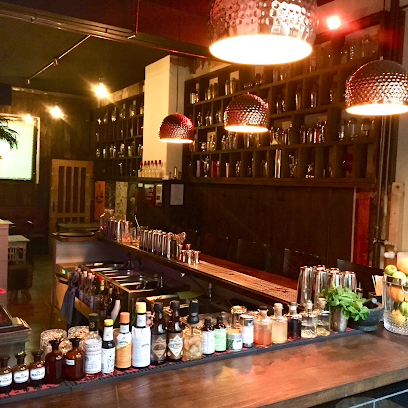
Harlėm Bar - Nürnberg
Harlėm Bar in Nürnberg: Where eclectic cocktails and vibrant nightlife converge in a welcoming atmosphere for all.
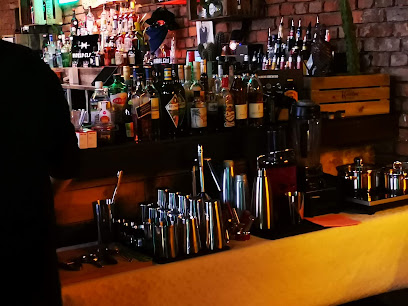
Vintage Bar - Nürnberg
Experience the best cocktails in Nuremberg at Vintage Bar, where quality meets creativity in a vibrant atmosphere.
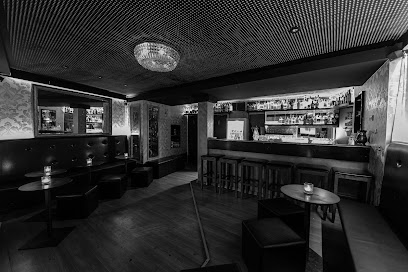
Bar Downtown Nürnberg
Discover the lively nightlife of Nuremberg at Bar Downtown, where great drinks and an inviting atmosphere await you.
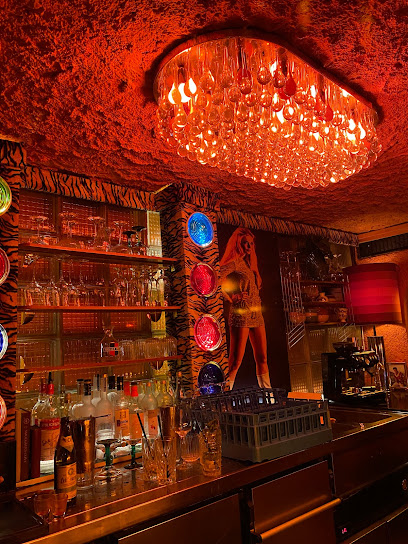
Local Phrases
-
- HelloHallo
[ha-lo] - GoodbyeAuf Wiedersehen
[auf vee-der-zay-en] - YesJa
[ya] - NoNein
[nine] - Please/You're welcomeBitte
[bit-teh] - Thank youDanke
[dahn-keh] - Excuse me/SorryEntschuldigung
[ent-shool-di-gung] - How are you?Wie geht es Ihnen?
[vee geyt es ee-nen] - Fine. And you?Mir geht es gut. Und Ihnen?
[meer geyt es goot oont ee-nen] - Do you speak English?Sprechen Sie Englisch?
[shpre-khen zee eng-leesh] - I don't understandIch verstehe nicht
[ikh fer-shteh-eh nikht]
- HelloHallo
-
- I'd like to see the menu, pleaseIch würde gerne die Speisekarte sehen, bitte
[ikh vur-deh gehr-neh dee shpy-ze-kar-teh zeh-en, bit-teh] - I don't eat meatIch esse kein Fleisch
[ikh es-seh kine flysh] - Cheers!Prost!
[prohst] - I would like to pay, pleaseIch möchte bitte bezahlen
[ikh merkhte bit-teh beh-tsal-en]
- I'd like to see the menu, pleaseIch würde gerne die Speisekarte sehen, bitte
-
- Help!Hilfe!
[hil-feh] - Go away!Gehen Sie weg!
[gey-en zee vekh] - Call the Police!Rufen Sie die Polizei!
[roo-fen zee dee poh-lee-tsay] - Call a doctor!Rufen Sie einen Arzt!
[roo-fen zee i-nen ahrts] - I'm lostIch habe mich verlaufen
[ikh hah-beh mikh fer-lou-fen] - I'm illIch bin krank
[ikh bin krank]
- Help!Hilfe!
-
- I'd like to buy...Ich möchte ... kaufen
[ikh merkhte ... kow-fen] - I'm just lookingIch schaue mich nur um
[ikh shou-eh mikh noor oom] - How much is it?Wie viel kostet das?
[vee feel koh-stet dahs] - That's too expensiveDas ist zu teuer
[dahs ist tsoh toy-er] - Can you lower the price?Können Sie den Preis senken?
[kuh-nen zee den price zeng-ken]
- I'd like to buy...Ich möchte ... kaufen
-
- What time is it?Wie spät ist es?
[vee shpeht ist es] - It's one o'clockEs ist ein Uhr
[es ist iyn oor] - Half past (10)Halb zehn
[halb tsayn] - MorningMorgen
[mohr-ghen] - AfternoonNachmittag
[nahkh-mit-tahk] - EveningAbend
[ah-bent] - YesterdayGestern
[geh-stern] - TodayHeute
[hoi-teh] - TomorrowMorgen
[mohr-ghen] - 1Eins
[eyns] - 2Zwei
[tsvai] - 3Drei
[dry] - 4Vier
[feer] - 5Fünf
[foonf] - 6Sechs
[zeks] - 7Sieben
[zee-ben] - 8Acht
[ahkt] - 9Neun
[noyn] - 10Zehn
[tsayn]
- What time is it?Wie spät ist es?
-
- Where's a/the...?Wo ist ...?
[vo ist] - What's the address?Was ist die Adresse?
[vas ist dee ah-dreh-seh] - Can you show me (on the map)?Können Sie mir das zeigen (auf der Karte)?
[kuh-nen zee meer dahs tsay-gen (owf der kar-teh)] - When's the next (bus)?Wann kommt der nächste (Bus)?
[vahn kommt der nekh-steh (boos)] - A ticket (to ....)Eine Fahrkarte (nach ....)
[i-ne fahr-kar-teh (nakh)]
- Where's a/the...?Wo ist ...?
History of Altstadt
-
Nuremberg's Altstadt, or Old Town, traces its origins back to the early 11th century when it was established as a fortified settlement. The city's strategic position along the trade routes of the Holy Roman Empire facilitated its growth, leading to the construction of significant structures such as the Kaiserburg (Imperial Castle) in the late 11th century, which served as a royal residence and symbol of power.
-
In 1219, Nuremberg was granted the status of a 'Free City' by Emperor Frederick II, which allowed it considerable autonomy. This status enabled the city to flourish economically and culturally during the late Middle Ages, becoming a hub for trade, arts, and crafts. The Altstadt was adorned with impressive Gothic architecture, including the Church of St. Lorenz and the Frauenkirche, reflecting the wealth and influence of its citizens.
-
The 15th and 16th centuries marked a golden era for Nuremberg, known as a center of the German Renaissance. The Altstadt became a vibrant cultural hub, attracting artists like Albrecht Dürer and Hans Sachs. The city's extensive marketplace and the annual Nuremberg Christmas Market highlighted its importance in commerce and culture, as well as its role in the Reformation.
-
After World War II, Nuremberg gained global notoriety as the site of the Nuremberg Trials (1945-1946), where leading Nazi officials were prosecuted for war crimes. The trials took place in the Palace of Justice located near the Altstadt. This period marked a significant shift in the city’s identity, from one associated with the Nazi regime to becoming a symbol of justice and accountability.
-
In recent decades, the Altstadt of Nuremberg has undergone extensive restoration efforts to preserve its historical architecture and cultural heritage. The city hosts numerous festivals, museums, and events that celebrate its rich history, including the Nuremberg International Human Rights Award, emphasizing its ongoing commitment to human rights and democracy.
Altstadt Essentials
-
Altstadt is easily accessible from other neighborhoods in Nuremberg. If you're arriving from Nuremberg's main train station (Hauptbahnhof), you can take a short walk to Altstadt, which is approximately a 15-minute stroll. Alternatively, you can hop on the U-Bahn (subway) lines U1 or U2, which have stops at the nearby Lorenzkirche or Weißer Turm stations. For those coming from the airport, the Nuremberg Airport has a direct bus line (Airport Line 32) that connects to the city center, where you can transfer to public transport to reach Altstadt.
-
Altstadt is a compact area, making it ideal for exploring on foot. Most attractions, such as the Nuremberg Castle, Albrecht Dürer's House, and the Hauptmarkt, are within walking distance. For longer distances, the U-Bahn and trams are convenient options. Nuremberg's public transport system is efficient, and tickets can be purchased at machines located in subway stations. Bicycles can also be rented, and there are several bike lanes throughout the area, allowing for a pleasant ride along the city's historic streets.
-
Altstadt is generally safe for tourists, but like any urban area, it is wise to remain vigilant. Petty theft, such as pickpocketing, can occur in crowded areas, especially in markets or during events. It is advisable to avoid poorly lit streets at night. Although there are no specific high-crime areas in Altstadt, tourists should be cautious around the train station and large gatherings, where distractions may increase the risk of theft.
-
In case of an emergency, dial 112 for immediate assistance. This number connects you to police, fire, and medical services in Germany. There are hospitals and urgent care facilities in Nuremberg, with the nearest emergency department located at Klinikum Nuremberg. It is recommended to have travel insurance that covers medical emergencies. For non-urgent health issues, local pharmacies are available and often provide assistance in English.
-
Fashion: Do dress comfortably and in layers, as the weather can change quickly. Avoid overly casual attire when dining in upscale restaurants. Religion: Do respect local customs when visiting churches; covering shoulders and knees is advisable. Public Transport: Do validate your ticket before boarding. Don't attempt to eat or drink on public transport. Greetings: Do greet others with a polite 'Guten Tag' and a smile. Don't interrupt someone who is speaking. Eating & Drinking: Do try local specialties like Nürnberger sausages and Lebkuchen. Don't engage in loud conversations in restaurants or cafes, as Germans appreciate a quieter dining atmosphere.
-
To experience Altstadt like a local, take time to visit the smaller shops and bakeries that offer traditional Nuremberg treats. Attend a local festival if your visit coincides with one; the Christkindlesmarkt during the Christmas season is especially popular. Engage with locals at cafes or beer gardens, where you can learn about their customs and recommendations. Don't hesitate to ask for directions or advice; Germans are generally helpful and can provide insights into hidden gems around the neighborhood.
Nearby Cities to Altstadt
-
Things To Do in Rothenburg ob der Tauber
-
Things To Do in Wurzburg
-
Things To Do in Munich
-
Things To Do in Karlovy Vary
-
Things To Do in Stuttgart
-
Things To Do in Plzeň
-
Things To Do in Erfurt
-
Things To Do in Heidelberg
-
Things To Do in Frankfurt
-
Things To Do in Leipzig
-
Things To Do in Salzburg
-
Things To Do in Bregenz
-
Things To Do in Kitzbühel
-
Things To Do in Innsbruck
-
Things To Do in Český Krumlov













